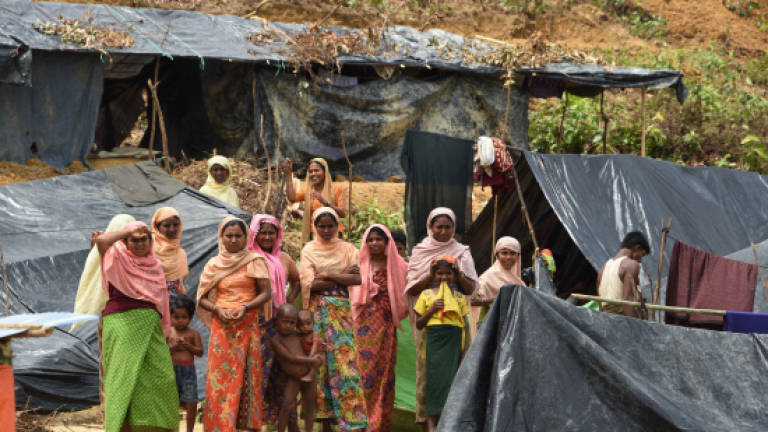Mapim proposes strong public mobilisation towards Rohingya issue

KUALA LUMPUR: The Malaysia Islamic Organisations Consultative Council (Mapim) today recommended strong public mobilisation towards the Rohingya issue.
Its president, Mohd Azmi Abdul Hamid said the society and civil society organisations' role was vital where people could be gathered and move fast in performing humanitarian missions.
"The government reacts very slowly. I understand they have some considerations and decisions to be made but we still hope that they can do something.
"Another move suggested is a strong coalition of Muslim countries such as Indonesia and Pakistan. They should be able to push the Myanmar government to stop the violence in Rakhine State."
Mohd Azmi said this to reporters after the presentation of the Burma Human Rights Network (BHRN) report on the "Persecution of Muslims in Burma", here, today.
The report is based on evidence collected by BHRN since March last year and it exposes the institutional persecution of Muslims under the new civilian government.
Meanwhile, Mapim is targeting at least 100,000 people to attend a peaceful protest gathering over the oppression and atrocities against the ethnic Rohingya minority in Myanmar this November, dubbed "A Million People and World of Anger – Rohingya".
It is expected to be held at the National Stadium in Bukit Jalil, Kuala Lumpur and to be attended by the nation's top leaders and members of about 100 non-governmental organisations.
Meanwhile, BHRN founder and executive director Kyaw Win, who was present at the report presentation, said severe persecution was going on against the ethnic Rohingya.
"Right now the new phenomenon is going on, which is anti-Muslim persecution. This is the root cause of it. Why Rohingyas are mainly persecuted? Because they are Muslims.
"This is the first such report focusing only on the Muslim community in Myanmar. We highlighted some serious issues like Muslim-free zones and citizenship rights," he said.
Prior to 2012, there had been a number of towns in Myanmar that had placed official restrictions on Muslims, namely in Rakhine State and Kayin State, but the number has grown throughout the country in response to narratives which portray the community as a threat.
The violence in 2012, according to the report, has triggered an intensified effort among Buddhist nationalists to determine who do and do not belong in Burma (Myanmar).
"The banishing of Muslims from Buddhist villages appears to be motivated by a perception that the presence of Muslims, both within the country as a whole and in the local settings, is diluting the strength of Buddhism and therefore is threatening," it said.
The report draws on more than 350 interviews in more than 46 towns and villages over an eight-month period. — Bernama